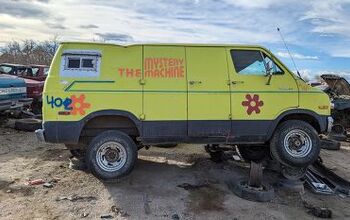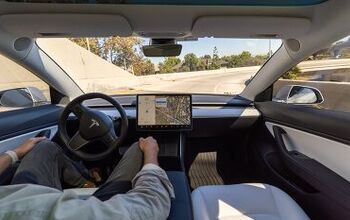Alliance of Automobile Manufacturers Prez Defends Org's CAFE Stance
As president and CEO of the Alliance of Automobile Manufacturers, representing BMW, DaimlerChrysler, Ford, General Motors, Mazda, Mitsubishi, Porsche, Toyota and Volkswagen, I can speak firsthand about the radical transformation that has been taking place within this global industry. For starters, let me be especially clear on this particular item: automakers support increasing Corporate Average Fuel Economy (CAFE) standards. In fact, today’s auto industry is currently advocating for the largest CAFE increase in U.S. history.
The Alliance supports an unprecedented 30 percent to 40 percent CAFE increase over the next 15 years. We believe it’s time to end the debate. We urge Congress to act now, so we can continue with the hard work needed to further our efforts to improve fuel economy. To find the basis for an argument that the auto industry feels otherwise, one would have to dig pretty deep into the archives.
You’d have to go back further than July 3 of this year. That’s the date the Associated Press first reported that we supported the Hill-Terry Bill (H.R. 2927), which calls for that historic CAFE average increase to 32mpg to 35mpg. This aggressive, but responsible bill currently has more than 120 cosponsors just two weeks after its introduction.
You’d have to go back further than March – that’s when the CEOs of four of our member companies testified before a House Energy and Commerce Subcommittee and pledged to support tough laws to combat global warming. True to our word, we have openly and aggressively supported CAFE legislation that serves both the environment and consumers.
You’d have to go back further than the late 1990s, when we were hard at work designing and engineering the 60 models of Alternative Fuel Automobiles (AFAs) on sale today – a 500 percent increase over the number of models available in 2000. AFAs run on power other than petroleum, and just a few years ago many consumers didn’t know what hybrids, biodiesels and E85 vehicles were. Today they’re buying them in record numbers.
In fact, to find the basis of Mr. Webber’s arguments [see; below], you would have to stretch all the way back to archives of the 1970s – when many of today’s auto industry leaders were still in college. The fact of the matter is that many of the people featured in those old black and white television clips and the now-yellowed newspaper clippings detailing the debates of the 1970s are no longer even in the auto manufacturing business.
Today’s auto industry is a new industry. Today’s automakers are committed to producing vehicles that use less fuel and meet our consumers’ diverse needs; whether our consumers run a small business and need a pick-up truck, have a large family and want, say, a minivan, or whether they want a small two-door coupe for themselves. Our job is to serve them all.
Transforming an entire industry and adapting to dramatic new CAFE standards takes planning. That’s why lead time is so important. Keep in mind that the cars and light trucks our engineers are working on today won’t be on sales floors until 2014 or later.
That’s how long it takes to coordinate the 3,000 different parts that go into a single vehicle. Or to enhance and refine the approximately 50 prototypes that lead to the production of just a single model. It’s hard to anticipate consumer trends that far out.
But anticipating consumer trends is essential to CAFE because one of the program’s least-understood aspects is that it’s based on vehicles sold, not vehicles produced. And American consumers for five straight years have chosen light trucks over passenger cars.
To remain viable for our employees, communities and customers, auto companies have to make decisions years in advance based on cold, hard business facts. We cannot turn a blind eye to the laws of economy that apply to virtually every free-market industry in the world: customers rule.
The cost of new technology cannot exceed what consumers are willing to pay. Sometimes cars that are designed well, built well, test well, marketed well and priced well, still – despite our best efforts – do not sell well. And when that happens, it’s the auto manufacturers alone that have to absorb the losses and make tough decisions.
For now, the decision we as an industry have made is this: we are transforming automobiles and the fuels that power them. We want consumers, including Mr. Webber, to be are aware of is this. Our companies have evolved as much as our products have. This industry has suppliers in every single state, and our products draw upon technology developed around the world.
Mr. Webber’s column asks why opposition to higher fuel economy makes sense. On behalf of this industry, let me say that it doesn’t make sense. That’s why we’re not doing it. We support increased CAFE standards and stand ready to continue the hard work of getting the job done.
[This article was written in response to a USA Today editorial " What are the Dinosaurs of Detroit thinking?" by Alan M. Webber. USA Today declined to run this rebuttal.]
More by Dave McCurdy
Latest Car Reviews
Read moreLatest Product Reviews
Read moreRecent Comments
- Lou_BC Well, I'd be impressed if this was in a ZR2. LOL
- Lou_BC This is my shocked face 😲 Hope formatting doesn't fook this up LOL
- Lou_BC Junior? Would that be a Beta Romeo?
- Lou_BC Gotta fix that formatting problem. What a pile of bullsh!t. Are longer posts costing TTAC money? FOOK
- Lou_BC 1.Honda: 6,334,825 vehicles potentially affected2.Ford: 6,152,6143.Kia America: 3,110,4474.Chrysler: 2,732,3985.General Motors: 2,021,0336.Nissan North America: 1,804,4437.Mercedes-Benz USA: 478,1738.Volkswagen Group of America: 453,7639.BMW of North America: 340,24910.Daimler Trucks North America: 261,959


































Comments
Join the conversation
This whole conversation is great. I just wish it could get to more people than us car nuts. -I think a gas tax would be stupid. the government already makes more money on gas than the oil companies do. What do they do with the money?? Ask the people who died in Minneapolis-surely it's not fix the roads and highway infrastructure. -I think the free market should dictate the way we move forward. That way no one is making sure the oil companies are in line to decide or monopolize the country's new energy source.
Frankly, I'm suspicious of anyone who poses in front of an american flag for their publicity face shot. Its like I'm about to be lied to (thank you, Bushes).